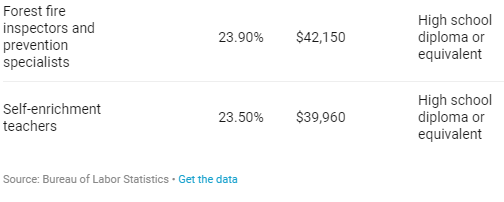By Jeph Ajobaju, Chief Copy Editor
Every country in the world sees higher enrolment yearly for tertiary education, a social leveller and provider of status and economic wellbeing, and springboard for all other achievements at the human level.
Education is the single biggest indigenous industry in Nigeria where tertiary institutions cannot cope with huge demand for admission and some parents send their children abroad to acquire degrees, particularly in Europe and America.
There are currently more than 14,000 Nigerians studying in universities in the United States, a country where Nigerians constitute the most educated resident group, with 59 per cent of them possessing at least a first degree.
CNBC reports that a college degree can put you on the fast-track to success in today’s job market by increasing your earning potential and access to different work opportunities – but higher education is an expensive investment that continues to be inaccessible for many.
Over the past 10 years, college costs have increased by about 25 per cent, according to a CNBC Make It analysis of data from The College Board. Student debt has skyrocketed alongside these rising costs; Americans currently owe more than $1.73 trillion in student loans.
According to a recent report from the Bureau of Labor Statistics, there are a range of jobs that don’t require a bachelor’s degree across several industries that are expected to be in high demand over the next 10 years.


Many of these jobs require a high school diploma, associate’s degree, or a post-secondary non-degree award.
A post-secondary non-degree award is a course usually completed in under two years that teaches you the specific skills or knowledge needed for a job.
Community colleges often offer these programs, which can include EMT certificates or library technician training, as two examples, Bureau of Labor Statistics Division Chief Michael Wolf tells CNBC Make It.
“It’s a bit of a hodgepodge,” Wolf says of the jobs ranking. “It’s hard to come up with a shared explanation for why they’re all popular … there are specific reasons why each is in-demand, and will continue to be over the next ten years.”
Trends driving the rise
There are three trends, however, driving the rise of nearly all the jobs: heightened demand for sustainable energy, an aging population and renewed interest in self-care during the coronavirus pandemic.
Wind turbine service technicians and solar photovoltaic installers are projected to be some of the fastest-growing jobs of the decade thanks to the urgency of climate change and the resulting demand for sustainable energy.
Occupational therapy assistants, physical therapy assistants, personal care aides and physical therapist aides will become critical roles as more baby boomers retire and depend on these services.
In a recent analysis, the University of Southern California notes that health-care costs for this group are expected to be high, as this generation is “living longer, yet experiencing higher rates of obesity, diabetes, high cholesterol, and hypertension.”
Wolf clarifies that physical therapist assistants and physical therapist aides have separate, distinct roles: assistants are actively involved in providing care to patients, while aides are not involved in providing care, instead focusing on administrative tasks like setting up equipment and completing office paperwork.
After dealing with pandemic-induced burnout and isolation for the past 18 months, people are investing more in personal services like massages and self-enrichment courses, leading to increased demand for massage therapists and teachers.
“People are realizing that focusing and maintaining their self-care is important not only for their mental state but their overall well-being,” Monster career expert Vicki Salemi says.
If you’re interested in pursuing one of these careers, Salemi recommends reading through job descriptions to identify which skills recruiters are looking for and reading trade publications or blogs for up-to-date information about the industry.
It’s also helpful to have related work experience, she adds, whether it’s through an online certification course, a work study program through your local community college or volunteering at a non-profit organization.
“Even if you don’t have any working experience, you can school yourself or shadow someone in the field,” Salemi says. “Not only will you learn valuable skills, but you could meet contacts and references for that next job.”













